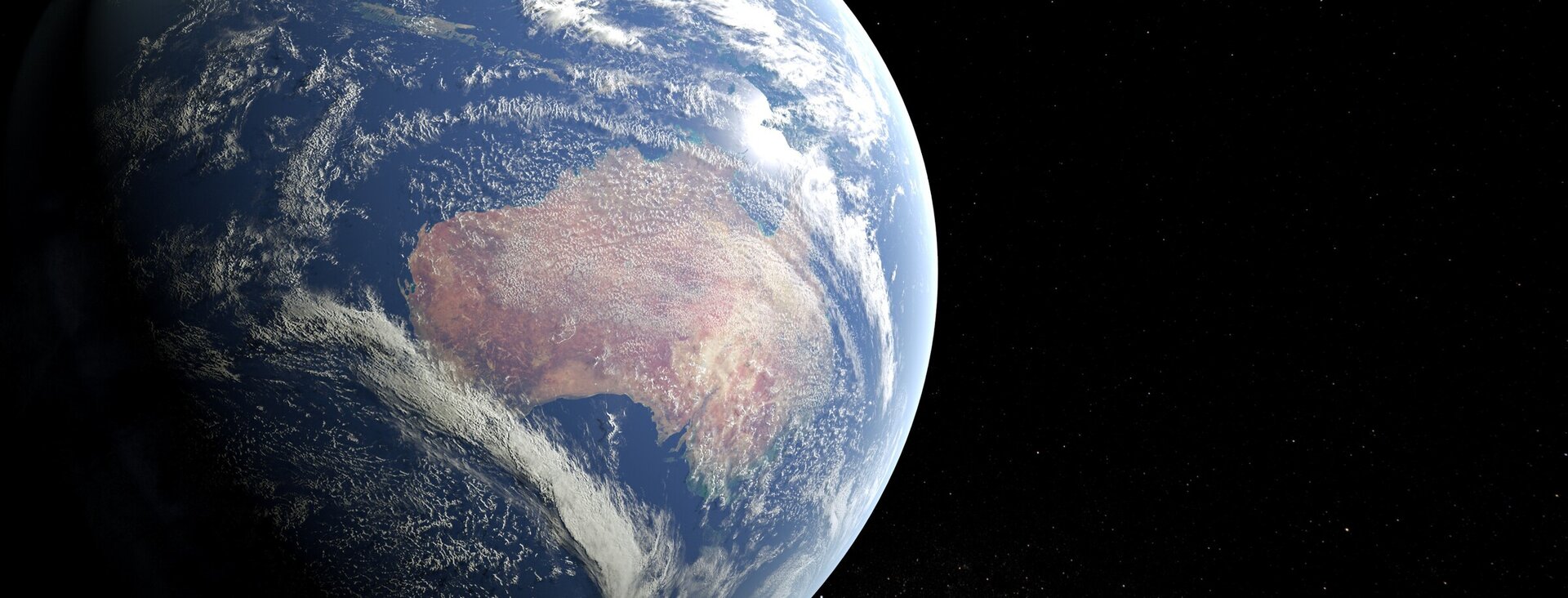Grahame, The Seaweed Man, is one of a group of people who watched the rise of chemical and industrial farming through the second half of the last century, but never let go of their dream for a better way of growing. That group includes Alex Podolinski (biodynamic), Bill Mollison (permaculture) and PA Yeomans, the father of Keyline farming.
If you've been following our blog for a while you would have read this one which is about our family's epic migration from South Australia to Far North Queensland, and our visit to the Wallace brothers' farms.
That week we spent at their farms in the Keiwa Valley changed all of our lives. It was there that Grahame was first introduced to Seaweed as a farming input, and there that he met PA Yeomans.
Grahame had already read Yeoman's book "Water for Every Farm" which had been written about 10 years earlier and by the early 70s was gaining quite a following.
Grahame and his brother Ashley had both sold up their city properties, quit their jobs and were determined to pursue their dreams of being organic farmers. After seeing the principles from "Water For Every Farm" at work on the Wallace's farms, Grahame and Ashley were more determined than ever to find properties that would suit the Keyline principles.
Geoff Wallace took them to meet PA Yeomans, who in 1974 was 92 years old. Grahame remembers...
"I met Yeomans and had read his book Water for Every Farm. Even at 92 he was a very tall man.
He had two farms of worked out clay and shale north of Sydney named Yobarnie and Nevallan. In 3 years he had transformed them to good pasture. He was a Mining Engineer and used this knowledge to work out his own way of farming. He was particularly interested in the environment, concerned about pollution and how we could best use our valuable water resources.
The Keyline system worked using almost no fertilizer, but using natural contours of the land and building a network of dams. Each dam had a big pipe through the wall with a gate to control the flow and shut off the water. From each dam he ran a ‘V’ shaped drain that fell at 400 to one around the hills and he dropped a FLAG - a strong canvas sheet held with a pole across the top and a chain across the bottom to weigh down. Placed across the drain this created a dam that made the water spill over the sides of the drain and run in sheets across the pasture. This process was repeated right to the base of the hill where he had another large reservoir.
Once settled in Queensland we bought a 12 ft model of the Yeomans Keyline plough, a Bunyip Shakerator, back in 1974 from his factory in Sydney.
I used it on my property on the Atherton Tablelands to open up hard red volcanic basalt soil and pull up rocks that seemed to grow from the soil. The rocks came to the surface because we made the surface soil softer releasing them.
The plough had a off centre shaker that helped the deep tines move forward more easily through the soil. It improved the pasture on mine and my brother's farm, using it in conjunction with Biodynamic 500 and Seaweed."
Postscript
Yobarnie is now listed as a significant site on the NSW Heritage Register.
PA Yeomans is recognised as a man ahead of his time. He could see our looming water crisis, which to this day remains as a national challenge but is only addressed in times of extreme drought and even now is soon forgotten. He is credited as being a huge influence on the founders of Permaculture, particularly Bill Mollison.
Yeomans book The City Forest reads as if it had been written this year, and yet Yeomans wrote it way back in 1971. He writes...
"The chemical sciences which have been debauched by business to make billions from polluting the Planet will continue to out-shout the healthy but financially crippled biological and social sciences. Business will fight strenuously and as ruthlessly as ever against changes which threaten their influence and their profits, while at the same time, they will advertise with the power of their money, that they will save the world."
We think our sense of impending environmental catastrophe is something only our current generations have encountered, but as you can see from PA's writing it is not new. Here we are almost 50 years since their meeting, and still Grahame is constantly writing and speaking about the exact same issues to anyone and everyone he thinks could make a difference.
It didn't happen in PA Yeomans' time and it probably won't happen in Grahame's, but I hope that one day their lifetimes' work will pay off.
One day we have to realise that working with nature is the only way we can survive.
Blog post by Liz and Grahame.



